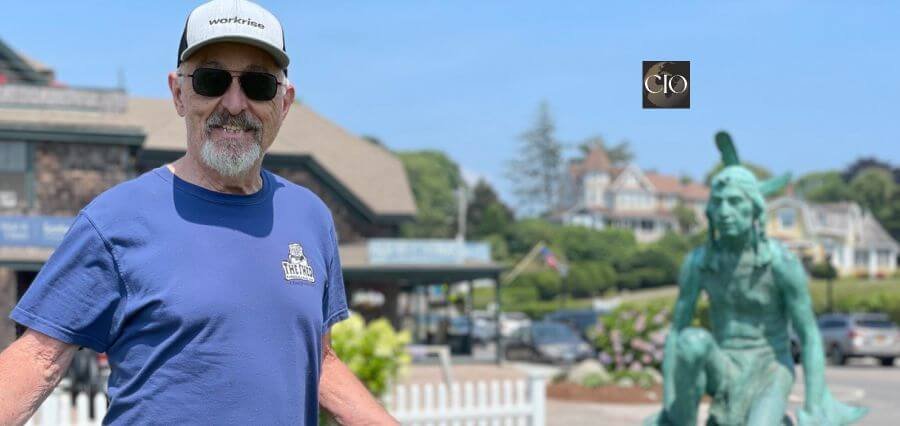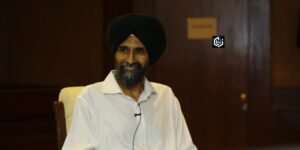Few individuals exemplify the principles of lifelong learning, academic excellence, and impactful innovation as profoundly as Richard C. Larson. A pioneering figure in the fields of operations research, decision science, and educational innovation, Larson’s journey is a testament to the transformative power of curiosity and commitment. For decades, he has stood at the forefront of intellectual progress, bridging theoretical rigor with practical application. His unwavering belief in education as a tool for societal betterment has touched countless lives, not just within academic circles, but across diverse communities and industries.
Equally remarkable is the deeply personal nature of Larson’s journey. His life and work were intricately intertwined with his late wife, Mary Elizabeth Murray (“Liz”), whose partnership in both spirit and practice played a pivotal role in expanding access to quality education around the world. Together, they championed initiatives that transcended geographical and cultural boundaries, furthering the cause of education as a universal right rather than a privileged resource. Whether through global educational outreach or mentoring future scholars, Richard Larson’s career exemplifies how personal values can enhance and guide professional pursuits.
As Richard C. Larson reflects on his extensive career, his story serves as both inspiration and guidance for aspiring educators, researchers, and thought leaders. Through MODEL-Based Thinking, pioneering research, and a deeply humanistic approach to knowledge dissemination, he continues to inspire generations. His work illustrates that learning is not a finite endeavor, but a lifelong quest—one driven not only by intellect but also by empathy, perseverance, and an enduring desire to make the world a better place.
Early Years and Academic Beginnings at MIT
Richard C. Larson credits his academic foundation to a pivotal opportunity—being admitted to the Massachusetts Institute of Technology (MIT) as an undergraduate straight out of Needham High School. While his father initially envisioned a more frugal path involving daily commuting, fate had other plans. Larson joined the Phi Beta Epsilon (PBE) fraternity, which, unlike many others located across the Charles River, was situated conveniently on Memorial Drive within the MIT campus. This decision would become formative, not just academically, but socially and emotionally.
The camaraderie, mentorship, and support offered by the PBE fraternity created an ideal environment for academic exploration. It was here that Larson began cultivating his enduring curiosity, which eventually led him to graduate studies in Operations Research. His passion for problem-solving and systems analysis deepened, culminating in a PhD. Near the end of his doctoral journey, a surprise opportunity came his way—his advisor, Professor Alvin W. Drake, offered him a position as an Assistant Professor. Although initially hesitant due to the “Groucho Marx syndrome”—a feeling of impostor syndrome—Larson accepted the offer, setting the stage for a lifelong commitment to academia.
The Joy of Teaching and Mentorship
Throughout his career, Richard C. Larson has emphasized that the true joy of academia lies not solely in research, but in teaching and mentorship. While lecturing had its rewards, it was the close one-on-one relationships with graduate students that he valued most. These academic collaborations often led to breakthroughs in research and cultivated a vibrant intellectual environment, where students felt encouraged to explore new ideas and challenge conventional thinking.
Many of Larson’s students have gone on to make significant contributions in their fields, a testament to the nurturing academic culture he helped foster. For Larson, teaching was never about the mere transfer of knowledge—it was about cultivating critical thinking, curiosity, and a hunger for innovation. He often notes that one of his greatest satisfactions is seeing former students become leaders, thinkers, and innovators in their own right.
Innovation Beyond the Lecture Hall
Even after retiring from full-time teaching, Larson continues to engage deeply in educational innovation. His work on “MODEL THINKING For Everyday Life” is a powerful extension of his lifelong mission to make complex concepts accessible and applicable. Through this initiative, Larson introduces readers to the value of conceptual models in everyday decision-making, helping them navigate life’s complexities with structured and informed thinking.
Larson believes that learning is a continuous journey that should extend beyond classrooms and laboratories. His outreach efforts aim to democratize knowledge by transforming abstract theories into practical tools for problem-solving. Whether addressing global audiences or local communities, his message remains consistent: education empowers individuals to make better decisions, improve their lives, and contribute meaningfully to society.
Embracing Lifelong Learning
Richard C. Larson often quotes Albert Einstein: “A day without learning is a day wasted.” This philosophy permeates every aspect of his life. He encourages people to remain curious and to find learning opportunities in everyday experiences—whether it’s observing new animal behaviors or analyzing a traffic pattern. To Larson, intellectual engagement is not confined to academia; it is a lens through which we can understand and improve the world.
Incredibly, some of his most impactful insights emerged during sleep. He vividly recalls dreaming of solutions to complex problems and waking up in the early hours to document them. One such revelation contributed to the creation of the Hypercube Queueing Model, a framework now widely used to optimize urban emergency services. Such episodes underscore his belief in the brain’s continuous capacity for learning and discovery, even in moments of rest.
Giving Back to Society and Future Generations
Richard C. Larson has always believed in the principle of giving back. Beyond his roles at MIT, he has actively supported educational initiatives for underprivileged students. He contributed significantly to Notre Dame Cristo Rey High School, advocating for equal access to quality education for students from all backgrounds. His philanthropic and academic contributions culminated in the establishment of the Larson Chair in Data, Systems, and Society at MIT. This endowment ensures ongoing research and innovation in these vital fields for generations to come.
His efforts reflect a deep commitment to societal advancement through education. Larson views academia not as an ivory tower, but as a platform to drive real-world change. By creating opportunities for the next generation of scholars, he has ensured that his legacy will extend far beyond his own work.
Lessons from Humbling Experiences
Every great career has its challenges, and Richard C. Larson’s journey is no exception. One of his earliest humbling moments occurred during his time as a Teaching Assistant. When asked to explain a complex equation in a lecture, he found himself momentarily at a loss. This experience, though initially disheartening, became a turning point. He resolved never to face a classroom without being thoroughly prepared.
From then on, he dedicated himself to understanding his material deeply and anticipating student questions. This commitment to excellence became a cornerstone of his teaching philosophy, shaping him into the respected educator he is today. For Larson, challenges are not setbacks—they are catalysts for growth, self-awareness, and continuous improvement.
Partnership with Mary Elizabeth Murray (“Liz”)
A significant source of strength and inspiration in Larson’s life was his wife, Liz. Their 43-year partnership was defined by mutual respect, shared goals, and a deep love for education. Liz played an instrumental role in the success of several of Larson’s academic and professional initiatives. She served as the Manager of the MIT BLOSSOMS program, a global online education initiative that brought high-quality learning resources to schools worldwide.
Together, they presented BLOSSOMS in various countries, even captivating audiences in places like Saudi Arabia. Liz’s confidence, intellect, and commitment were central to their shared vision of education as a universal right. Her passing left a deep void, yet her influence remains ever-present in Larson’s continued dedication to their mutual mission.
Adapting to Technological Change and AI
Even in retirement, Larson stays attuned to emerging trends in technology and education. One area he watches closely is the rise of Artificial Intelligence. While he recognizes AI’s transformative potential, he also expresses concerns about its implications for academic integrity. He notes that students now have unprecedented access to AI tools that can generate content with minimal effort, raising serious questions about genuine intellectual engagement.
Despite these concerns, Larson is hopeful. He believes that human qualities—critical thinking, ethical reasoning, and creativity—will remain indispensable. AI can support education, but it should never replace the curiosity-driven learning that forms the heart of academic discovery. He urges educators to evolve with these changes while preserving the core values of education.
Guidance for Aspiring Academics
Larson’s advice to young scholars is rooted in passion and purpose: “Follow your learning passions.” He encourages students to explore beyond the confines of curriculum, to ask difficult questions, and to seek knowledge in unconventional places. According to him, the most significant breakthroughs often arise from bold inquiries and uncharted intellectual territories.
His own career exemplifies this ethos. Innovations like the Hypercube Queueing Model and the Queue Inference Engine were not pre-planned but emerged organically from a deep engagement with real-world problems. He stresses that impactful research often comes from aligning one’s passion with a pressing need, leading to discoveries that benefit both science and society.
Continuing Mission and Public Outreach
While Larson may have stepped back from active research, his mission continues with vigor. His recent public engagements, including speaking appearances and media features, aim to spread the message of MODEL-Based Thinking to broader audiences. One particularly memorable milestone was being featured on a 20-story billboard in Times Square, highlighting his enduring impact.
His book and public speaking efforts underscore his belief that knowledge should be democratized. Whether addressing scholars, professionals, or laypersons, Larson’s goal remains the same: to empower individuals with the tools and frameworks needed for better decision-making. His work is a testament to the idea that education does not end with a degree—it evolves with every new experience and insight.
A Journey That Continues
Richard C. Larson’s life and career offer a compelling narrative of what it means to be a lifelong learner, a visionary educator, and a committed humanitarian. His story is a reminder that true education is not merely about acquiring information—it is about cultivating wisdom, empathy, and a desire to uplift others.
As he continues to share his insights with the world, Richard Larson proves that the pursuit of knowledge is, indeed, a lifelong endeavor. His legacy encourages all of us to remain curious, to think critically, and to never stop learning.
Read More : The Lifelong Pursuit of Knowledge and Innovation Through Richard C. Larson’s Vision




